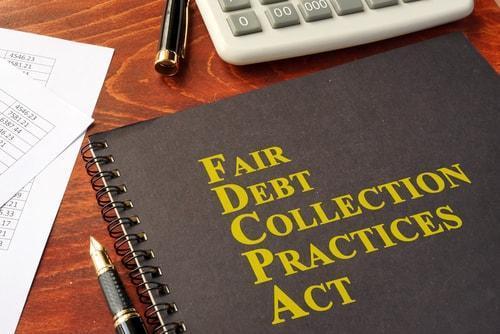Creditor Harassment after Bankruptcy
 Making the decision to file for bankruptcy is not an easy one. For the most part, bankruptcy is entered as a last resort when no other options have worked to help you get out of debt. Once you enter into the bankruptcy process, your creditors -- or the people you owe money to -- are no longer permitted by law to continue to try to collect on your debt. This does not stop some creditors -- some continue to try to collect on debts. More often than not, when a creditor contacts you after you have filed for bankruptcy, it is a simple mistake. In some situations, creditors may continue a second or third time to collect on your debt -- this is when you may be able to take legal action against your creditor for illegal harassment.
Making the decision to file for bankruptcy is not an easy one. For the most part, bankruptcy is entered as a last resort when no other options have worked to help you get out of debt. Once you enter into the bankruptcy process, your creditors -- or the people you owe money to -- are no longer permitted by law to continue to try to collect on your debt. This does not stop some creditors -- some continue to try to collect on debts. More often than not, when a creditor contacts you after you have filed for bankruptcy, it is a simple mistake. In some situations, creditors may continue a second or third time to collect on your debt -- this is when you may be able to take legal action against your creditor for illegal harassment.
The Automatic Stay
The moment you file your bankruptcy case, something called the automatic stay goes into effect. The automatic stay is a federal injunction that prohibits creditors, collection agencies and government entities from attempting to collect on most debts. The automatic stay prevents creditors from:
- Calling you;
- Sending you letters, texts or emails;
- Seeking a judgment against you;
- Foreclosing on your home;
- Garnishing your wages; or
- Repossessing your property.
When you file for bankruptcy, you are required to list all entities that you are indebted to. When you file for bankruptcy, the court clerk will send a notice of bankruptcy to all of your listed creditors within 24 to 48 hours. Once your creditors receive that notice, they are officially required to suspend collection activities.
What You Can Do
If you are still being harassed about your debts after you have filed for bankruptcy or your debts have been discharged, there are things you can and should do.
- Inform your debt collector of the bankruptcy. In most cases, collection attempts are made before the creditor is aware that you filed for bankruptcy. Though the court clerk is required to send the notice of bankruptcy 24 to 48 hours after you file, the notice is typically sent through the mail, which can take up to 10 days in some cases. Before you take more drastic measures, inform the debt collector that you have filed for bankruptcy and ask them not to call you anymore.
- Keep notes about collection attempts. If your creditor attempts to contact you in any way, try to keep notes about their collection efforts. If they call you, write down the time and date of the call, the representative’s name and contact information and what they say to you. If you receive letters in the mail, keep the letters. These records may be used as evidence in a lawsuit against your creditor if necessary.
- Hire a bankruptcy attorney. In most cases, after you inform your creditor that you have filed for bankruptcy, they will not contact you again. If you have a creditor who will not stop harassing you about your debt, you may need to hire a bankruptcy lawyer. A lawyer who is experienced in bankruptcy law will be able to help you file a lawsuit against a creditor who will not stop collection activities.
Contact a New Braunfels, TX Bankruptcy Lawyer for Help With
According to the United States Bankruptcy Code, you have the right to take legal action against creditors who repeatedly attempt to collect on debts during the automatic stay or after your debts are discharged. If you are being harassed by creditors, the Law Offices of Chance M. McGhee are ready to help. Our knowledgeable Kerrville bankruptcy attorneys will make sure your rights are protected and will take legal action against your creditors, if necessary. To schedule a free consultation, call our office today at 210-342-3400.
Sources:
https://wallethub.com/edu/d/automatic-stay/25548/
https://www.thebalance.com/when-creditors-do-not-stop-calling-after-bankruptcy-4156787
https://www.consumerfinance.gov/ask-cfpb/can-a-debt-collector-try-to-collect-on-a-debt-that-was-discharged-in-bankruptcy-en-1425/






